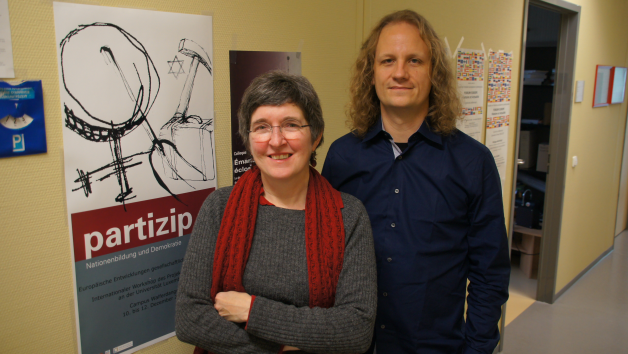BACK TO RESEARCH WITH IMPACT: FNR HIGHLIGHTS
BACK TO RESEARCH WITH IMPACT: FNR HIGHLIGHTS
The University of Luxembourg’s interdisciplinary project Partizip 2 examines 20th-century social cohesion processes.
It can’t harm to broaden your horizon. However, in order to gain a reasonably objective view of what’s happening in your own backyard, you need to look beyond your neighbours. So, for instance, if you’d like to know how well certain sections of the population were (or have) integrated into Luxembourg society, then you need to do more than just compare the situation in your own country with that in Belgium, France or Germany.
Placing Luxembourg’s history in a European context
“In order to understand Luxembourg’s history, you have to place it in a regional and European context,” says social philosopher Thorsten Fuchshuber, who is involved in Partizip 2, an interdisciplinary project of the University of Luxembourg that examines 20th-century social cohesion processes. “That’s the only way to find out what is illustrative of the region or specific to Luxembourg,” he says.
Luxembourg’s democratisation process during the 20th century is the focus of the project sponsored by an FNR CORE grant. The previous project, Partizip 1, dealt with the process in the early years of the 20th century.
Focus on how society was shaped by external influences
Partizip 2 is focusing on the period between the First World War and the 1980s, and in particular on the role certain groups of people (such as workers, migrants, religious minorities and women) played in democratisation and the extent to which society was shaped by these groups and by external influences.
“Every democratic society follows the fundamental principles of participation,” states Renée Wagener, another scientist also involved in the project. “In practice, however, this participation hadn’t been working for a long time,” she adds. She cites equal rights for women as an example. “In Luxembourg, women enjoyed the same rights as men comparatively early,” she says, “but, in practice, their emancipation didn’t materialise. It wasn’t until the 1970s that married women were on a par with men.”
Thorsten Fuchshuber further explains that such authoritarian tendencies can be found throughout Europe. “We want to find out what is specific to Luxembourg or what corresponds to a broader general tendency throughout society. Anti-Semitism, for instance, was prevalent in Luxembourg before and during the Second World War,” he confirms. “Only here, it didn’t lead to extermination as in Germany.”
Exploring the effect of nationality on society’s existence
“A question that should be asked in this context is whether nationality is the decisive factor in a society’s existence,” ponders Thorsten. “For instance, a Jew living in Luxembourg can feel part of Luxembourg society but, at the same time, still relate to Judaism. Another question concerns the extent to which Jews, and indeed other ethnic groups, can claim they were excluded from 20th-century society,” he explains.
One of the project’s main challenges is to correctly classify the specific developments in society. This is a complex task due to the various influences which are exerted from all sides on a small country such as Luxembourg and which are so pronounced in their different ways. For instance, the process of creating the Luxembourg nation was repeatedly jeopardised, delayed or accelerated from the outset.
This occurred due to the racial and political propaganda spread by the National Socialists in the 1930s, during which a large proportion of the Luxembourg population was regarded as part of the German ethnic community, or to the subsequent occupation during the Second World War.
More than 80 WWII eyewitnesses interviewed
Loretta Walz’s contribution to the Partizip 2 project deals with the latter. The film-maker and Adolf Grimme Prize holder from Düsseldorf interviewed more than 80 eyewitnesses from Luxembourg and the Greater Region. She questioned people about their experiences and recollections of forced recruitment, resistance to the National Socialists, the threat of resettlement and everyday life during the occupation and the war. Afterwards, she asked how they managed to cope with these experiences in Luxembourg society following the war.
The film material gleaned from her interviews is suitable for political education in schools and for scientific purposes. Furthermore, it enriches the collective memory of a society in which the number of witnesses from this time is constantly dwindling.
This case study was originally featured in the FNR 2014 Annual Report

RELATED PROGRAMMES